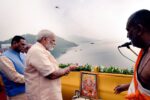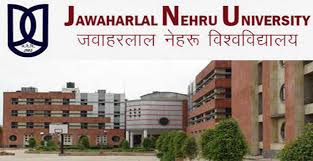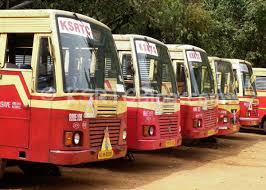‘PM Vishwakarma Kaushal Samman’ (PMVIKAS) for artisans

“Small artisans play an important role in the production of local crafts. PM Vishwakarma Yojana focuses on empowering them”
“PM Vishwakarma Yojana is aimed at the development of traditional artisans and craftsmen while preserving their rich traditions”
“Skilled craftsmen are symbols of the true spirit of self-reliant India and our government considers such people as Vishwakarma of new India”
“Empowering every section of the village for its development is essential for India’s development journey”
“We need to reorient our skill infrastructure system according to the needs of Vishwakarmas of the nation”
“The Vishwakarmas of today can become entrepreneurs of tomorrow”
PM Vishwakarma Kaushal Samman (PM VIKAS)” Yojana is a game changer initiative by the government to identify the local traditional artisans and craftsmen who were not a part of any targeted interventions so far : Shri Narayan Rane
The scheme will support local creative industries and thereby promote financial inclusion and gender equality and will strengthen the march towards empowered and inclusive economy : Shri Rane
Setting up of marketing agency/entity for promoting marketing activities, packaging of items, improving global market linkages, setting up of e-commerce platform etc are most important.
The Prime Minister Shri Narendra Modi announced ‘PM VIshwakarma KAushal Samman’ (PM VIKAS) exclusively for providing holistic support to the artisans and crafts persons.
The Prime Minister said that PMVIKAS is dedicated to the skill and expertise of the crores of Indians. Referring to skilling and creating job opportunities for crores of youth through Skill India Mission and Kaushal Rozgar Kendra, the Prime Minister emphasized the need for a specific and targeted approach. PM Vishwakarma Kaushal Samman Yojana or PM Vishwakarma, the Prime Minister said is a result of this thinking. Explaining the need for the scheme and the rationale of the name ‘Vishwakarma’, the Prime Minister talked about the exalted status of Lord Vishwakarma in the Indian ethos and a rich tradition of respect for those who work with their hands with implements.
The Prime Minister said while a few sectors’ artisans received some attention, many classes of artisans such as goldsmiths, carpenters, ironsmiths, sculptors, masons and many others that are an integral part of society have been adapting to the changing times to fulfill the needs of the society that were ignored.
Referring to Gandhiji’s concept of Gram Swaraj, the Prime Minister highlighted the role of these professions in village life along with agriculture. “Empowering every section of the village for its development is essential for India’s development journey”, he said. The Prime Minister said similar to the benefit to street vendors through the PM SVANidhi scheme, PM Vishwakarma Yojana will benefit the artisans.
The Prime Minister stressed the need to reorient the skill infrastructure system according to the needs of Vishwakarmas. He gave the example of Mudra Yojana where the government is providing loans worth crores of rupees without any bank guarantee. He pointed out that this scheme must provide maximum benefit to our Vishwakarmas and also mentioned the need for digital literacy campaigns to Vishwakarma Saathis on priority.
Mentioning the continued attraction of hand-made products, the Prime Minister said that the government will provide holistic institutional support to every Vishwakarma of the country. This will ensure easy loans, skilling, technical support, digital empowerment, brand promotion, marketing and raw material. The Prime Minister said “The objective of the scheme is to develop traditional artisans and craftsmen while preserving their rich tradition. Our aim is that Vishwakarmas of today can become entrepreneurs of tomorrow. For this, sustainability is essential in their business model”.
The Prime Minister highlighted that artisans and craftsmen can be further strengthened when they become a part of the value chain and pointed out that many of them can become suppliers and producers for our MSME sector.
The Prime Minister concluded by requesting all the stakeholders to prepare a robust blueprint for implementation of PM VIKAS. He emphasized that the government is trying to reach out to the people in the remote parts of the country and many of them are getting the benefits of the government schemes for the first time. Most of the artisans are from backward communities or are women and to reach and provide benefit to them a practical strategy will be needed. “For this, we will have to work in a time-bound mission mode”, the Prime Minister concluded.
The special address by the Prime Minister was followed by four parallel breakout sessions on (i) Access to affordable finance, including incentives for digital transactions and social security, (ii) Advanced skill training and access to modern tools and technology, (iii) Marketing support for linkages with domestic and global markets and (iv) Structure of the scheme, identification of beneficiaries and implementation framework.
The important suggestions that emerged from various stakeholders included the need for interest subvention, collateral free loans with support from credit guarantee fund with minimum guarantee fee, special provisions for women entrepreneurs, the importance of incentivizing digital transactions and providing social security through pensions and insurance etc. The constraints surrounding the availability of affordable credit, a critical challenge faced by small entrepreneurs, was deliberated in detail and the need of providing collateral free credit at low rate of interest and providing additional credit on repayment of initial loan and minimum documentation for availing credit were few key points that emerged out of the discussion.
Suggestions including involvement of expert artisans and craftspeople in imparting training, importance of providing modern and technically efficient toolkits and machineries to them, addressing occupational health and safety issues, and setting up of raw material banks etc.
The session brought out various valuable suggestions on setting up of marketing agency/entity for promoting marketing activities, packaging of items, improving global market linkages, setting up of e-commerce platform etc.
The session witnessed suggestions from various stakeholders on identification of beneficiaries, credit support, incentives for digital transactions, importance of social security, skill training, access to tools and technology, marketing and logistic support, implementation framework, role of Central/State Government Departments/Agencies, monitoring framework and MIS system.
Minister of MSME, Shri Narayan Rane emphasized that the budget announcement of 2023 on PM VIshwakarma KAushal Samman (PM VIKAS)” Yojana is a game changer initiative by the government to identify the local traditional artisans and craftsmen who were not a part of any targeted interventions so far. The Minister also said that the scheme will support local creative industries and thereby promote financial inclusion and gender equality and will strengthen the march towards empowered and inclusive economy. He also assured that the officials of Ministry of MSME will further deliberate on the suggestions received from all stakeholders for effective and time bound action plan for designing and implementing PM-VIKAS Yojana.
Shri Piyush Goyal, Minister of Textiles, highlighted on the need of convergence of PM VIKAS scheme with the existing schemes in other Ministry/Departments. He also mentioned about the importance of breaking the silos in implementation of this scheme.






